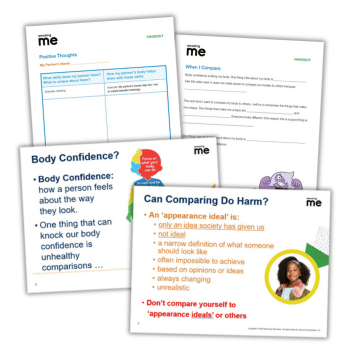Staff wellbeing ideas teachers – Why I cancelled a staff meeting

The reality of true wellbeing is that it's different for all of us, says Vicki Manning…

When I posted a quick tweet after our recent staff meeting, I did not expect the passionate responses I received.
Usually, my tweets gain a vast audience of between one and three people, so the barrage of comments was a bit of a surprise. But it highlighted the strength of feeling many practitioners have around the buzz word of the moment: wellbeing.
The tweet in question: “We put today’s staff meeting aside and challenged teachers to use the time to boost their wellbeing. Some people headed off to the theatre, some went home early to see the children and some of us took a few moments to read and have a coffee. What would you do?”
Lots of people jumped on immediately to praise what we had done, but there were (as always on Twitter) those who offered some points of reflection. One of the main reasons I am on Twitter is to learn and to enhance my practice. These questions and challenges are always welcome, and I enjoyed those who challenged with a curious and kind approach.
Teacher wellbeing
At my school, we produce a half-termly schedule for staff, detailing what is coming up, such as planned CPD, school events, deadlines and monitoring for the half term.
In spring 1 we had included a staff meeting dedicated to wellbeing. The purpose of including this on the schedule was to allow teachers to plan in advance how best to use the session.
In my tweet, I deliberately used the word ‘challenge’, because I know that busy teachers will often see any extra time in the school day as the perfect time to ‘catch up’ on work.
And, yes, having more time for the things on our to-do list can be just the thing for improving wellbeing, but for this specific session I wanted it to be something more powerful.
Over lockdown I joined a remote event where the speaker talked about filling your cup, and about how, for him, the opportunity to go running before he got home for the day meant that he could return to his family with energy and calm.
As professionals, we are always busy and I know the teachers and leaders in my school will often work in the evenings and weekends. This can very quickly lead to overwhelm, stress, burnout and exhaustion.
Not just a tick-box
We all know that to provide the best education we can for our pupils, we need oodles of patience, calm and energy.
But everyone’s heard of the horrors of the mandatory staff yoga session, and I’ve worked in many schools where ‘wellbeing’ is ticked off through these kinds of novelties; a junk food Friday, forced fun in the pub, or a Zoom quiz. But the reality of true wellbeing is that it’s different for all of us.
We all get our energy from different things, and events like this won’t hit the spot for everyone. I wanted the scheduled session to have the flexibility for teachers to choose what would work for them.
Prior to the session I asked staff what they were planning to use the time for. Some were already clear; they had seen the meeting listed on the schedule in advance and had made plans, such as booking theatre tickets.
Others were not so sure, and were surprised when asked directly. It wasn’t so much that I wanted to hold people to account for their use of this time, but more that I was hoping to prompt their thinking about what would work for them, and to support them in prioritising themselves amongst their busy to-do lists.
I started having these conversations a few days before the session, but on the day of the event there were still some teachers who had decided to use the time to catch up on work.
I made sure to visit them at the end of the school day, asking them to compromise a little and perhaps finish earlier than they would have.
These discussions were useful in understanding the staff a bit better. It is becoming clear that some are able to see the benefits of time out, and others find the thought of it uncomfortable.
Making time
Deciding to dedicate directed time like this of course means that we lost an opportunity for direct staff training or specific work.
Time in school is valuable, and this did mean we had to carefully consider what would be missing from the development schedule this term. However, we have also been considering how to make staff development more effective, useful and engaging for teachers.
We’ve introduced more active approaches, such as a peer development cycle, loosely based on the lesson study approach. This allows teachers to visit each other’s classrooms and choose their own development foci, and it takes place within the school day and weekly phase meetings.
We’ve also taken a more responsive approach to our school improvement work this year, ensuring we review regularly and focus on the most essential areas each half term. This creative use of the time we have available has allowed us to be more flexible with scheduled staff meeting time.
Truly developing wellbeing is going to take a lot more than a one-off event in the school diary. Ultimately, staff CPD sessions are part of our directed time.
Staff need to attend them, and there are always so many things we could use that time for, but openly dedicating sessions to wellbeing demonstrates a commitment to the individuals in our teams.
It is all too easy for teachers and leaders to put their own wellbeing at the bottom of that to-do list, and it can help if leaders model the importance of focusing on this, even when there are so many competing priorities.
Giving up a staff meeting for this purpose is not the answer to improving wellbeing, and of course there is only so much that can be achieved in an hour or two, but it is certainly a start.
We aim to hold sessions like this every term, and we are currently writing our own strategy to be shared with everyone in school. Of course, key to this is consulting with staff and finding out what really helps them.
If you have ideas to contribute, I’m always keen to hear them! Find me at @HeadOnTheHill on Twitter.
For more wellbeing ideas, try Sarah Watkins’ six tips for teacher wellbeing.
Vicki Manning is headteacher at Ash Hill Primary School in High Wycombe.











